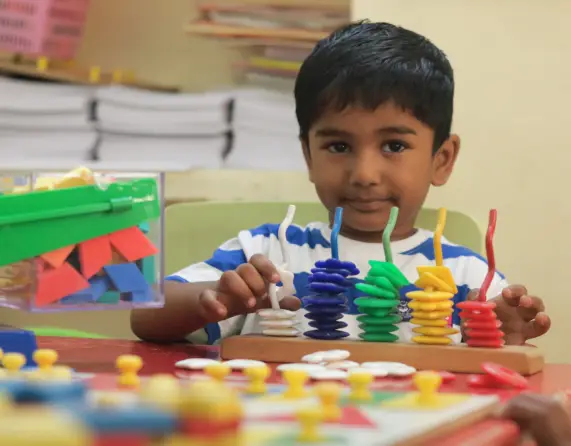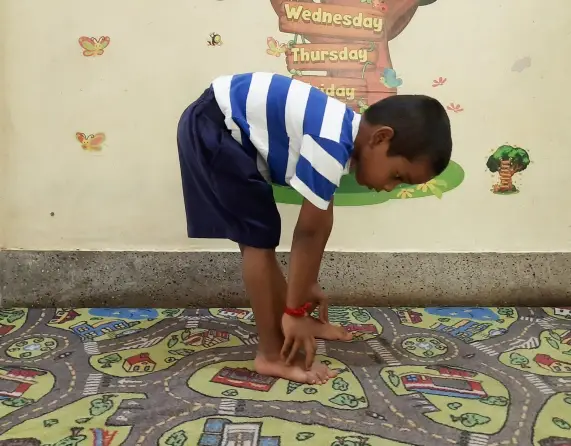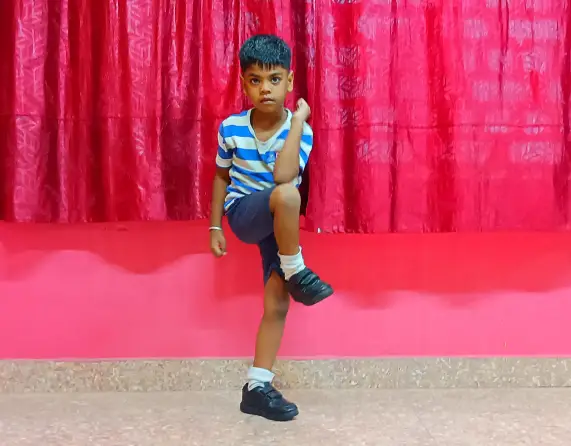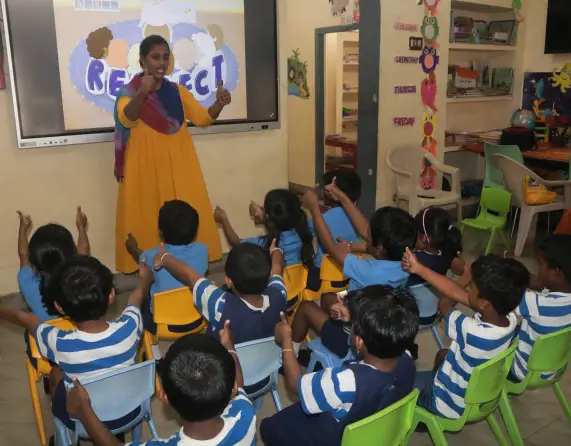Introducing the 7 Habits to kids can be done in a fun and engaging way.

Introducing Governing value education to kids involves teaching them essential life skills and values that help them succeed both personally and socially.
To make these values stick, integrate them into daily routines, use positive reinforcement, and lead by example. Share stories, conduct activities, and create a supportive environment that reinforces these life skills consistently.
Emphasizes academic, social, emotional, and physical growth.
Incorporates a globally recognized curriculum to provide a broad perspective.
Utilizes theme-driven lessons to make learning engaging and contextual.
Includes Hindi and Spanish to enhance linguistic skills.
Integrates values and ethics into the curriculum to foster well-rounded development.
Introduces subjects like theatre skills and mind-body fitness for comprehensive education.




Learning to express thoughts and ideas clearly.
Understanding and sharing the feelings of others
Working effectively with peers.
Thinking creatively and critically to solve issues.
Being flexible and open to change.
Prioritizing tasks and managing time efficiently.
Making thoughtful and informed choices.
Guiding and motivating others
Introduce medical terminology to the kids, For example, Medical tools, Anatomy basics,common ailments, health and hygiene, vaccination etc.
Medical Terminology for Kids at CK CONFIDENT KIDS School
At CK CONFIDENT KIDS School, we believe in educating our students about health and wellness from an early age. Understanding basic medical terminology empowers children to communicate more effectively about their health and fosters a lifelong awareness of personal well-being. Our age-appropriate medical terminology program is designed to make learning about health fun and engaging.
We introduce children to the basic anatomy of the human body, helping them learn the names and functions of different body parts:
We teach children simple terms related to common health issues and medical conditions:
Understanding hygiene and safety is crucial for children's health. We teach them terms related to personal care and safety practices:
We familiarize children with terms they might encounter during a doctor’s visit:
Promoting a healthy lifestyle involves understanding various health-related terms:
To make learning medical terminology enjoyable and memorable, we use various engaging methods:
At CK CONFIDENT KIDS School, our goal is to equip children with the knowledge and skills they need to take charge of their health. By making medical terminology accessible and fun, we help children become confident and informed about their well-being.
We prioritize the holistic well-being of our students. Our Wellness Centre is dedicated to nurturing the physical, mental, and emotional health of our children through specially designed programs like yoga and brain gym activities. These initiatives help our students develop mindfulness, focus, and a sense of calm, setting a strong foundation for lifelong well-being.
Our yoga program is tailored to meet the needs of young children, incorporating fun and engaging activities that promote physical fitness, flexibility, and mental clarity.


Brain Gym activities are designed to stimulate cognitive development through physical movements and exercises. These activities help improve coordination, concentration, and learning abilities.
At CK CONFIDENT KIDS School, our Wellness Centre is a vital part of our commitment to providing a nurturing and supportive environment for our students. Join us to ensure your child enjoys a well-rounded and balanced educational experience, fostering both academic success and personal well-being
